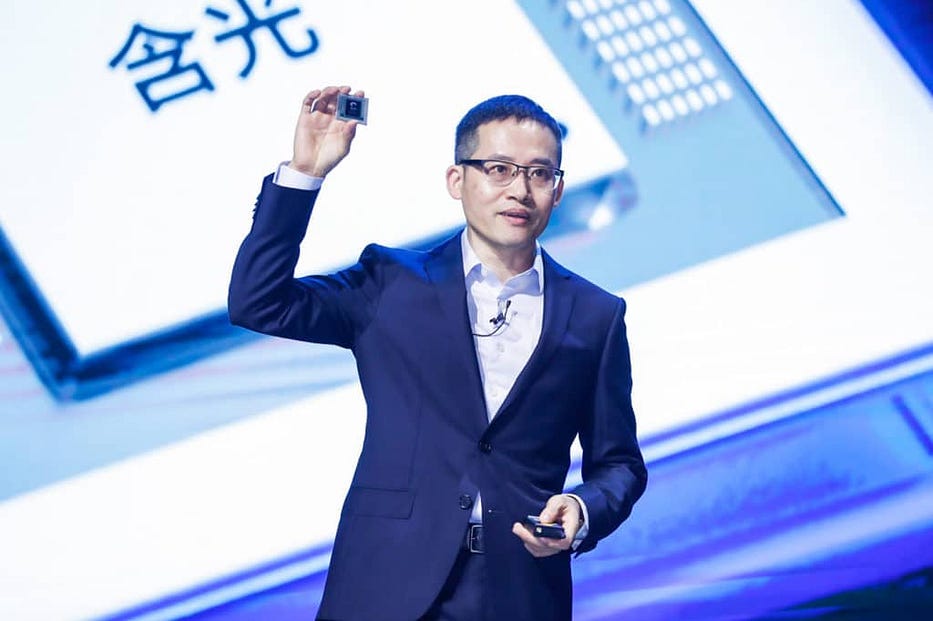As global AI chip shortages and geopolitical tensions escalate, China is intensifying efforts to develop indigenous AI chips, aiming to reduce reliance on foreign technology and establish itself as a leader in the AI domain.
Key Takeaways:
- Huawei, Alibaba, and Baidu are at the forefront of China’s AI chip development, introducing processors like Huawei’s Ascend series, Alibaba’s Hanguang 800, and Baidu’s Kunlun chips.
- Nvidia currently dominates the AI chip market, but U.S. export restrictions have limited its ability to supply advanced chips to China, prompting Chinese firms to accelerate domestic chip development.
- China’s Ministry of Industry and Information Technology (MIIT) is implementing standards to enhance AI chip production efficiency, focusing on separate standards for training and inference processes.
- Chinese AI chips are gaining traction domestically, with companies like Baidu deploying large-scale AI training clusters using their own Kunlun chips.
- The AI chip market in China is projected to grow significantly, with investments in AI and generative AI expected to reach $110 billion by 2028, growing at a compound annual growth rate (CAGR) of 24.0% from 2023 to 2028. (IDC)
- China still faces an innovation gap compared to leading Western firms like Nvidia and AMD, especially in high-end chip performance and fabrication technology.

Alibaba introduces its first ultra-fast AI chip, Hanguang 800
Global AI Chip Shortage and China’s Response
The global technology industry is experiencing a shortage of AI chips, essential for powering advanced AI applications. U.S. export restrictions have exacerbated this shortage, particularly affecting China’s access to high-performance chips like Nvidia’s H100. In response, Chinese companies are investing heavily in developing domestic alternatives.
Huawei’s Ascend Series
Huawei has developed the Ascend series of AI processors, including the 910B and 910C models. These chips are designed to handle complex AI tasks and are part of Huawei’s strategy to reduce dependence on foreign technology. The company plans to ship over 800,000 Ascend 910B and 910C chips in 2025 to domestic clients like ByteDance. (WSJ)
Alibaba’s Hanguang 800
Alibaba introduced the Hanguang 800, its first AI inference chip, in 2019. The chip is designed to accelerate AI tasks such as image recognition and search ranking, significantly improving performance for Alibaba’s cloud services. (Alibaba Cloud)
Baidu’s Kunlun Chips
Baidu has developed the Kunlun series of AI chips, with the latest third-generation P800 chips deployed in a 30,000-chip AI training cluster. This cluster supports large-scale AI model training and is part of Baidu’s efforts to enhance its AI capabilities. (Reuters)

Standardization and Efficiency in AI Chip Production
To improve the efficiency of AI chip production, China’s MIIT has introduced standards separating AI chip functions into training and inference categories. This approach aims to optimize chip design and manufacturing processes, reducing costs and improving performance. (MMLC Group)
Challenges and Outlook
While Chinese companies have made significant strides in AI chip development, challenges remain. Domestic chips often lag behind their foreign counterparts in performance, and manufacturing capabilities are still developing. The innovation gap remains a core challenge, particularly in advanced node design, GPU performance optimization, and global supply chain integration. However, with continued investment and government support, China’s AI chip industry is poised for substantial growth.
Conclusion
China’s concerted efforts to develop indigenous AI chips reflect a strategic move to achieve technological self-reliance amid global supply constraints. By investing in domestic chip development and standardization, China aims to secure its position in the global AI landscape.
Sources:
- IDC: AI Investment Forecast
- WSJ: Huawei Chip Rollout
- Alibaba Cloud: Hanguang 800 Overview
- Reuters: Baidu Kunlun Deployment
- MMLC Group: MIIT Standards Update







